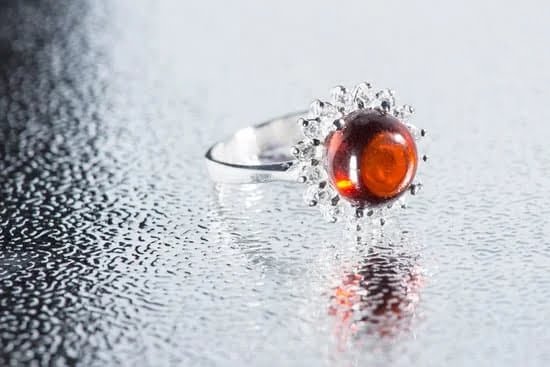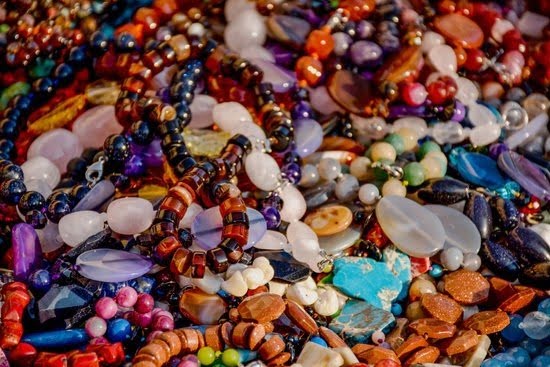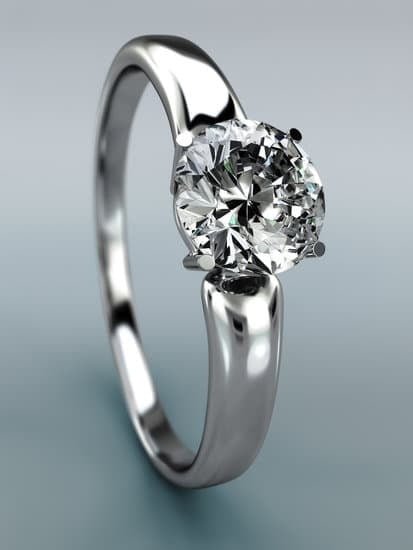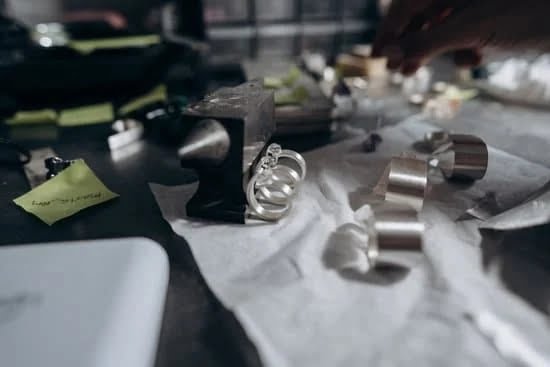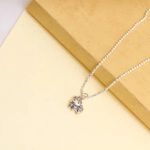Introduction
With their eye-catching sparkle, timeless allure, and emotional significance, it’s no wonder that jewelry pieces are often some of our most appreciated possessions. To keep your precious pieces looking their best, we’ll be discussing effective ways to clean your jewelry at home.
Cleaning methods not suitable for every type of jewelry will vary, so it’s important to begin by identifying the composition of the piece you’re about to clean. Jewelry is commonly made from gold, silver or platinum as well as non-precious metals like brass and copper. Diamonds and other stones are also popular decorations on jewelry pieces adding a unique touch. Depending on what materials make up the piece being cleaned will determine which products and methods can be safely used.
To clean precious metals like gold and silver without scratching them, a soft toothbrush or cloth should be used to manually remove dirt from surfaces before attempting deeper cleaning of intricate shadows or crevices in decorative objects. Generally speaking, mild dishwashing detergent dissolved in warm water can be employed for deep cleaning purposes but again should be tested on an inconspicuous area first given its potentially corrosive nature.
For diamond-encrusted rings that require extra attention to detail, a solution of one part ammonia to six parts water can help soften built-up dirt that regular detergent may not penetrate. Using caution when applying solution directly to ring settings with stones and allowing sufficient time for liquid penetration is key to successful cleaning without damaging the piece itself. Following use with mild soapy water is also recommended followed by rinsing under cool running tap water then air drying using tissue paper or cloth leaving a dazzlingly polished look and new sheen upon completion.
Safety Considerations
It is important to consider the safety of both yourself and your jewelry when cleaning it at home. One of the dos when it comes to cleaning jewelry at home is to use a mild soap and lukewarm water mixed together. Using this solution, you can then gently use a soft bristled toothbrush or specific jewelry brush for more intricate pieces and scrub away any dirt and dust that may have accumulated over time. Another do is to rinse the jewelry off with cold running water after scrubbing, to ensure all soap residue is removed from cracks and crevices, allowing it to fully dry afterwards.
On the other hand, there are also some don’ts that should be considered when cleaning jewelry at home. You should never mix chemicals or attempt to clean with chemicals meant for other materials such as glass, wood or cloth as this can damage your delicate pieces beyond repair. Additionally, never use toothpaste, baking soda or vinegar as these abrasive ingredients can scratch metals, stones and even pearls. Lastly, avoid excessive heat and steam while cleaning your jewelry as this can loosen settings on stones or distort delicate charm chains.
By following this guide, you will be able to safely clean your precious pieces yourself with ease!
Best Practices to Clean Jewelry At Home
Different types of jewelry require different cleaning methods, so it is important to know what materials and tools to use.
To clean precious metals (gold and silver) without the stones, you can use a jewelry cleaning solution made specifically for gold and silver followed by a polishing cloth. To protect your semi-precious stones when using the jewelry cleaning solution, insert a cotton swab in between the stones and metal as you apply the cleaner. For platinum, use a commercial speciality cleaner or mix mild dish soap with lukewarm water and soak in for several minutes
For jewelry with pearl finishings or pearls, use an ammonia-based cleaner that has been mixed with warm water. Avoid brushing or rubbing vigorously as this could damage the pearls. Once the piece is dry, lightly buff it with a soft cloth. If your jewelry has diamonds in it, avoid ultrasonic cleaners as this can cause damage to diamond settings on pieces with delicate parts
For gemstones such as rubies, sapphires, emeralds and other hard gemstones that have some dirt on them but have not tarnished due to oxidation, dip them into a quick-acting liquid jewelry cleaner or simply wipe away any dirt using warm soapy water and soft cloth then rinse off
In cases of extreme tarnish of silver items or extremely dirty gold items where all previous treatments did not work return it to your jeweler for further treatment.
DIY Jewelry Cleaning Solutions
There are a variety of recipes and natural mixtures that work well for cleaning jewelry at home. One popular recipe is to use a mixture of one part liquid dishwashing detergent and one part ammonia in warm water. After mixing these ingredients, use a soft brush to scrub the jewelry with the solution and then rinse it off with warm water. Another recipe suggests using baking soda and white vinegar as an effective jewelry cleaner. Simply mix one teaspoon of baking soda in a cup of white vinegar and stir until it forms a paste. Then apply the paste on the jewelry, let it soak for several minutes and use a soft cloth or toothbrush to remove any dirt or grime from the surface. Finally, rinse the jewelry with warm water and dry it off with another cloth or paper towel. Lastly, a common home remedy is to simply clean jewelry with water, toothpaste, and a bit of elbow grease using an old but clean toothbrush!
Jewelry Care Tips
If you want to keep your jewelry looking its best for years, it is important to take care when cleaning it. The key is to use the correct cleaning techniques that will prevent damage and protect the quality of your jewelry. Here are some tips on how to clean jewelry safely and correctly at home:
1. Always start by making sure that all surfaces are free from dirt, dust, makeup and other substances which can cause damage to the metal or gemstone settings. Gently wipe down the item with a soft cloth or cotton swab before beginning any other type of cleaning process.
2. Never use acidic cleaners such as bleach or vinegar on precious metals; instead opt for mild detergents like Ivory soap or dish-washing liquid diluted with warm water when using harsh chemicals. Avoid using abrasive items such as toothbrushes or steel wool since these can also cause scratches to appear on the surface of the jewelry over time.
3. During the cleaning process, pay special attention to areas underneath stones and around settings ” especially in antique pieces ” as they often require extra gentle care due to their delicate design work or intricate settings which could potentially become damaged with too vigorous scrubbing.
4. Polish each piece with a dry soft cloth after you’re finished with the main cleaning process; this helps restore shine and luster back into your items quicker than if left untouched afterwards.
5. Lastly, make sure that each cleaned item is properly dried off before returning it back into storage ” either in an individual pouch or box depending on how much space it takes up in order for it to be safely stored away for future access whenever needed!
Researching Professional Cleaners
When looking for a professional jewelry cleaner, it is important to do your due diligence by researching the service providers and understanding their process. When researching different professional cleaners, look for customer reviews of each company to make sure that the end result is of high quality. Ask questions about their cleaning process, such as what type of solution they use, how long it will take, how much it will cost, and any other applicable fees. Make sure that they are certified as qualified jewelers who are experienced in working with different types of jewelry since not all jewelry materials can be treated the same way. Specifically ask if they inspect the jewellery before cleaning and after cleaning to ensure that no damage was done during the process. Additionally, ask if their services provide any kind of guarantee so that you can rest assured that your treasured pieces are in good hands.
Conclusion
It is important to take good care of your jewelry, whether it is expensive or costume jewelry. Fortunately, you can clean most pieces of jewelry at home using simple materials and techniques. The ideal method for cleaning will depend on the type of material the piece is made from; however, common household ingredients such as baking soda, salt, and water are all safe options for most types of jewelry. More delicate pieces may require specialized cleaners that can be bought in stores or online.
No matter which method you use, always clean jewelry with gentle movements by using a soft brush or cloth with slight pressure and pay special attention to crevices and areas where dirt often accumulates. Work slowly and thoroughly to ensure effective cleaning without damaging the piece. Additionally, it is important to properly store your jewelry when not in use by keeping it in a separate box lined with soft fabric. This helps prevent scratches and keep your favorite pieces looking their best for years to come! With these tips in mind, you now have all the tools necessary for cleaning your jewelry at home like a pro!

Welcome to my jewelry blog! My name is Sarah and I am the owner of this blog.
I love making jewelry and sharing my creations with others.
So whether you’re someone who loves wearing jewelry yourself or simply enjoys learning about it, be sure to check out my blog for insightful posts on everything related to this exciting topic!

